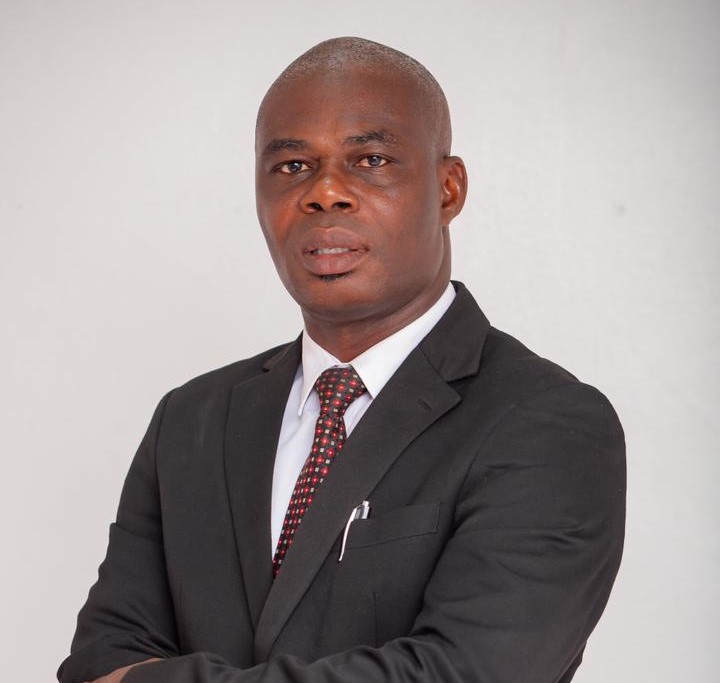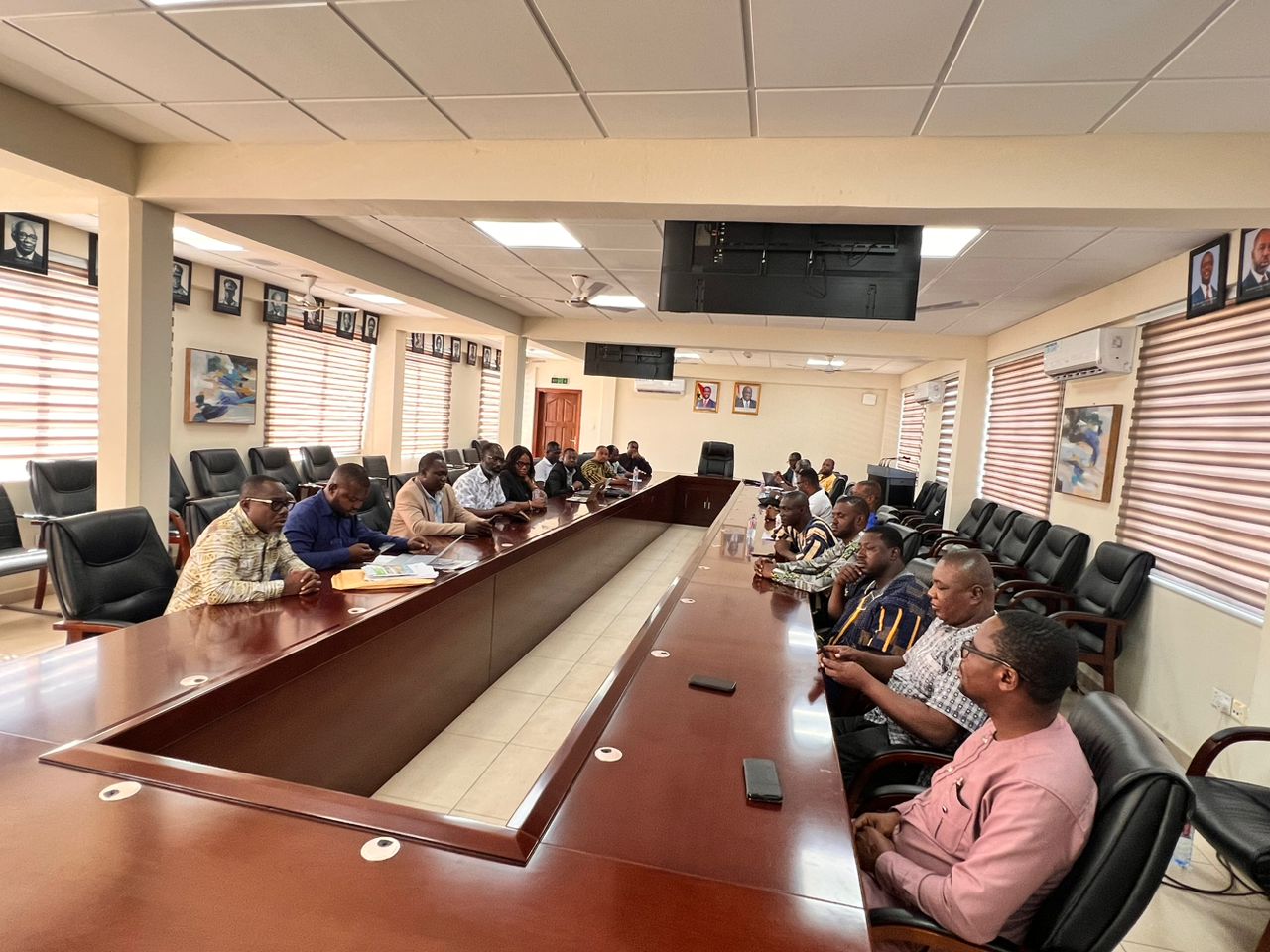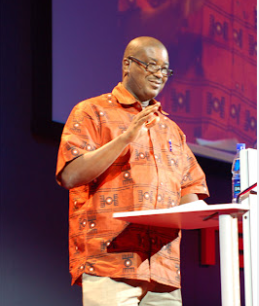
The main fight i.e. the presidential elections is billed for December 7, 2024. The venue, instead of Bokum Arena or Madison Square Garden, would be at the various polling stations in each of the 275 constituencies in Ghana.
The country’s electoral ‘Don King’ (Promoter) since July 2018, the November-born Jean Adukwei Mensa, Esq. is preparing the grounds and added rules for the fight. Would punching below the belt be allowed this time? The ringside judges are all fired up for this historic fight, titled ‘The Clash of the Northerners’. But I prefer ‘The Rumble in the North’. Uneasy tension and excitement is building up. Various pundits are predicting who is likely to win at what round. Sudden death at round one? Or technical knockout at round two? Only time will tell.
Meanwhile, what some consider as the main fight, the highlight of the day, is billed between a one-term disputed title holder who would appear on the stage with the song “Come back, come back, come back to me, Odo….” and a seemingly aggressive wannabe main title aspirant whose appearance song, “Odo me de stiya (steer) no b3 ma wo…” has become a house-hold hit. Patronizingly, every potential fan is called Odo during the pre-fight hype but an unassuming third fighter, ‘Arkad the GTP Prophet’ is lurking around with his taunting song, “Afrafrator eiiiiiii eii eii eii…”
Pre-fight events are getting interesting. While the third fighter, Arkad, also nicknamed “The Richest Man in Babylon” is minding his business organizing ‘Theatres of Learning’ to explain and sell his GTP, the two pampered ‘title fighters’ are sizing up and flexing muscles at the weigh-in events. They are facing-off each other, granting circus-like media interviews, and undertaking other promotional activities to generate excitement and anticipation for the upcoming bout.
Now, the fighter with the “Odo Stiya” song, the presidential candidate of the ruling New Patriotic Party, Dr. Mahamudu Bawumia, in a typical face-off mode, is prancing about (in his unusual stage-dance style) and provoking the other “Odo” fighter, H. E. John Dramani Mahama, presidential candidate of the New Democratic Congress (NDC) to a public debate, a pre-show ‘comedies’ as we like to say in Ghana.
…and it appears that while fighter Dr. the ‘Steer’ Bawumia is requesting for this with vehemence, the main opponent, Mr. the ‘One-Term’ Mahama seems to treat this request with disdain. That, after all, the former and his coach, H. E. Nana Addo Dankwa Akufo-Addo (some fans now call him ‘Me dofo adaadaa me’) boycotted a similar debate in 2016.
The minority caucus in Parliament has rather invited the Vice President and presidential candidate of the ruling New Patriotic Party to attend parliament and debate the mid-year budget review instead. Alan, ‘Arkad the GTP Prophet’, is smiling and minding his own business, quietly preaching his gospel to those who have ears to listen… The rains would come one day, so come aboard the Noah’s Ark in your pairs from wherever you belong… The huge oak doors will be closed to those who hardened their ears. He seems to admonish.
Interesting! ‘Don King’ always wants a good show. In all the ‘face-off’ melee, the Institute of Economic Affairs (IEA), a quiz / debate master has come out to announce with a press release that; Hold your guns, guys, the Institute will once again organize a Presidential Candidates and Vice-Presidential Candidates Debates before the 2024 General Elections in December to provide a common platform for all political party candidates to discuss various aspects of the nation’s development process. Is Arkad happy? He’s already teaching in the synagogues.
Can you imagine? These Presidential Debates? As if this is a battlefield, a boxing arena for the best pugilists to knockout its weakest opponents before the final round. Does it really matter? What, at all, is the essence and wages of Presidential Debates in Ghana? Let me hazard a response.
Cough! Cough! Cough! You may think of Ayaricough / Ayaricof. That’s alright! But there is an Afro-beats musician by name Kizz Daniel. Prolific entertainer, he is. The lyrics of one of his ‘bangers’ – Cough – are very apt to describe what these debates are turning into. The song should be played at the ringside at IEA’s ‘Bokum Arena or Madison Square Garden’ during such Presidential Bouts. He sings: “… I want to flex my love… I wan impress… And I want to carry my love away… to a place she loves…” Those who know this song can imagine the dance that goes with the chorus (… Odoyewu ei, Odoyewu ei, Odoyewu ei …). It’s an anticipatory or jubilatory movement. Power to the waist! It’s a conquest dance. The ‘Presidential Boxers’ come to flex and impress with their big English, economic grammar and out-of-this-world policies and promises to wow the electorates during these debates, and after winning their love, some say, they would f**k them up.
This song, to me, clearly analogizes the essence and wages of presidential debates as we have come to see it in Ghana but should that be so? No! There should be more to it than the flexing circuses they have become lately.
Historically, the organization of presidential debates in Ghana is relatively recent compared to other democratic nations but we have seen a significant evolution in our political landscape, with such debates becoming an important part of our democratic process.
The return to multi-party democracy in 1992 marked a significant turning point in Ghana’s political dispensation. However, the first presidential debates did not occur during the 1992 elections period. The focus was primarily on establishing a stable democratic framework after years of Rawlings’ military rule.
Fast forward into the 2000s, presidential debates have now become core ingredients, or if you like, one of the spices to be included in cooking the election dishes of our dear country. Therefore, its significance, the essence and wages should be discussed.
The first semblance or shot at organizing a presidential debate happened during the 2000 elections period. It is noteworthy to argue that ‘Don King’s’ Institute of Economic Affairs (IEA), a Ghanaian public policy institute, initiated the concept in recent Ghana. However, not all contesting political party candidates partook in this maiden formalized debate. It wasn’t really a hit because Ghana was not acclimatized to openly discussing alternative political views after years of incarcerating freedom of political association and of free speech. Only the bold could talk, let alone debate freely.
However, as we grew in our new found political freedoms and associations and opinions, open debates or differing politico-economic and social discourses could be had in the open. The debate tradition begun to grow. During the 2004 elections, ‘Don King’ (the promoter) was at it again. The IEA organized another debate, which gained more traction. This debate saw the participation of leading candidates, providing a platform for them to discuss their policies and engage with each other directly.
By 2008, after another four years in our multi-party political growth trajectory, these presidential debates were becoming more established. That was when the IEA organized debates that included both ‘Drivers and their Mates’ – presidential and vice-presidential candidates – and were covered and viewed extensively, contributing significantly to public political intercourses.
2012 was something else. This is when the full impact and different debate dynamics evolved. Again, IEA did not disappoint to organize the Debates and brought together the major candidates to put forward their takes on a range of important national issues. The debates were broadcast live on television, radio, and online platforms, reaching a wide audience and helping to inform the electorate.
Cough! Cough! Cough! This is the year that the infamous coughing, in the history of political debates, took place. The alleged misbehavior was the apparent fits of cough that attacked a presidential panelist, Hassan Ayariga, then the People’s National Convention (PNC) Presidential candidate during the 2012 debate whenever Nana Akufo-Addo had to present his case. According to the New Patriotic Party (NPP) Member of Parliament (MP) for Assin Central, Kennedy Agyapong, Mr Ayariga, was given money for that purpose, a major online news portal in Ghana reported.
Mr Ayariga subsequently got the nickname – Ayaricough or Ayaricof – after that notoriously incessant coughing to distract Nana Akufo-Addo’s message in the course of the debate.
Ayariga was ridiculed as the PNC candidate. Some members of his party also criticized him. This arguably led to him leaving the PNC to form the minor All People’s Congress where he was elected as flag bearer for the 2016 elections and got to no good. Was that the wages to pay for a dubious cough during the debate in 2012? The sad consequence of a presidential debate!
Curiously, it was during this time, the 2012 Presidential Debates that Jean Mensa, now the substantive Electoral Commissioner of Ghana, and her IEA selected Kojo Oppong-Nkrumah (now a cabinet Minister in the NPP government) and Prof. Naana Jane Opoku-Agyemang (now a running mate to the NDC flag-bearer) as their moderators. Shouldn’t we be delighted that these three figures have become notable figures in Ghanaian politics today? Keep your thoughts and answers to yourselves.
Let’s move on. Interestingly, in 2016, the IEA organized the presidential debates again, but for the first time, the New Patriotic Party (NPP) and its candidate Nana Akufo-Addo boycotted it. Une fois mordue, deux fois timide ! Once bitten, twice shy! Why should one subject himself to another bout of irritating coughs?
Subsequently in 2020, the National Commission for Civic Education (NCCE) and other civil society organizations took on a more prominent role in organizing debates. Was my dear Jean tired, or was it a case of conflict of interest? The focus in 2020 was to enhance voter education and encourage peaceful elections in the country.
Although, presidential debates in Ghana have seen their fair share of derelictions, they have become crucial components of our democratic elections, serving multiple functions that contribute to the political process.
For some, it represents an authoritative source of information about candidates’ policies, leadership styles, and visions for the country. They provide a platform for candidates to articulate their positions and respond to their opponents directly.
If fairly organized and properly structured, Presidential Debates form a key feature of Ghana’s democratic engagement, encouraging political participation and public scrutiny of candidates. These Debates should compel candidates to articulate and defend their records, proposals, and positions. This transparency holds candidates accountable for their past actions and promises, allowing voters to assess their credibility and reliability.
During such debates, clear distinctions are made between candidates on key issues. No coughing business. Jokers, charlatans and opportunists are easily detected. This helps voters understand the fundamental differences in policy approaches, priorities and leadership styles. Their autocratic tendencies, laissez faire attitudes and democratic stances would be laid bare for voters to decide.
These Debates may test candidates’ abilities to think on their feet, respond to criticism, and engage in direct dialogue. This aspect evaluates their competence, temperament, and readiness for the pressures of the presidency. Their emotional intelligence are measured.
Moreover, presidential debates are arenas for engaging the public, if attendance are not restricted. They help in shaping public perception, give credence to our democratic process, and provide material for media analysis and public discourse. Post-debate coverage and discussions help to further clarify and scrutinize the candidates’ positions and performance.
Overall, presidential debates are a vital democratic tradition that enhances the electoral process by informing voters, promoting accountability, and encouraging civic engagement. Has this been the case, so far, in Ghana? Should any candidate be chastised if he /she refuses to honour any invite or calls for a debate?
The answer may be found in the antics of the ‘coughing detractors’ and some hired noisy cheerleaders and the choices, aspirations and conducts of organizers and moderators. That of the story about the ‘political antics or assignments of Assibey’ would be told another day.
It is a known fact now that popular stand spectators of presidential debates usually mar the essence of the event because of their distractive tactics. Can you imagine? Just as it happens at boxing arenas, they would cheer, scream, whistle and clap incessantly at the slightest cued sound-bite or jab from their preferred contender. Their opponents would know no peace. Hooting, booing, jeering and heckling from these ‘hired tugs’ would make nonsense of the opponent’s submissions. Those who have strong posterior trachea walls and larynxes and imaginary irritation of the carina of their tracheas would cough nonstop, making it difficult for anyone to hear anything.
As for the choices, aspirations and conducts of organizers and moderators, need I cite precedents?
The debates are clearly beneficial to the electoral process in Ghana and the wages of it might be handsome, interesting, or unfortunately catastrophic, depending on where you stand. Medaase!
The post Can you imagine with Ben ACKAH-MENSAH: The wages of Presidential Debates appeared first on The Business & Financial Times.
Read Full Story












Facebook
Twitter
Pinterest
Instagram
Google+
YouTube
LinkedIn
RSS